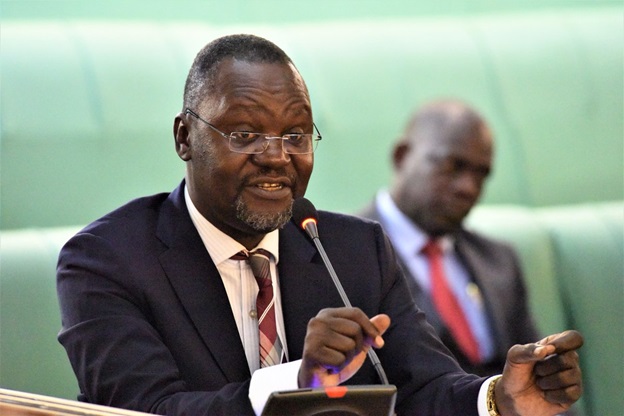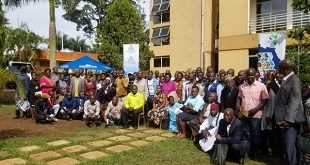
Kampala, Uganda | THE INDEPENDENT | The closure of Crane Bank by Bank of Uganda was illegal. This is according to a report by the committee on Commissions, Statutory Authorities and State Enterprises -COSASE.
The report indicated that an analysis of the Bank’s liquidity from 1st January to 24th January 2017 revealed that the financial institution had recovered from liquidity distress from mid-January 2017 to the time it was disposed on 25th January 2017.
“In fact, Bank of Uganda had stopped injecting money on 9th January 2017. Therefore the bank’s liquidity position had stabilized,” reads the report.
The report was on Thursday presented by Bugweri County MP Abdu Katuntu to the plenary sitting chaired by Speaker of Parliament Rebecca Kadaga.
Crane Bank Limited was closed by Bank of Uganda (BoU) on October 20, 2016, after it failed to comply with a capital call on July 1, 2016.
Central Bank Governor Emmanuel Tumusiime Mutebile says that the Bank takeover was guided by the systemic nature of the under capitalized institution to avoid financial sector instability.
Katuntu told parliament that his committee observed that BoU management did not provide a plan or assessment detailing efforts to return the bank into compliance with prudential standard despite funding with 478.8 billion shillings.
“The above notwithstanding, at pages 7 and 8 of the special audit report of February 2019 on the accountability for the Shillings 478 billion injected into CBL, the Auditor General observed that CBL liquidity position was significantly below compliance level for the first two months of the statutory management period. However, in the last month of statutory management, from 1st January 2017 to 24th January 2017, CBL met the required liquidity compliance levels. Therefore the bank’s liquidity position had stabilized,” said Katuntu.
Katuntu also noted the failure of BoU to involve the statutory manager Katimbo Mugwanya in the sale of the bank he was managing.
“There was even no opportunity for the statutory manager to formally handover the bank and indeed, Katimbo Mugwanya only learnt of the sale of the bank when he received a picture of loan files being ferried on his phone by WhatsApp when he was on his farm. He was told of the sale by his staff at CBL,” Katuntu reported before playing an audio of Mugwanya presenting evidence to the committee concerning the matter.
The committee recommended that in the process of taking a decision to liquidate a financial institution, detailed plans for the revival should be exhausted before taking the most extreme action of liquidating.
COSASE further recommends that the Statutory Manager’s assessment as revealed in his report prior to liquidation should be key in forming the basis for the decisions of the Central Bank in relation to liquidation.
“Such a report would reveal the financial status of the institution including its ability to return to prudential compliance,” said Katuntu.
Earlier this month, former Crane Bank owner, Sudhir Ruparelia told COSASE that the agreement for the sale of Crane bank to DFCU was shoddy and fraudulent.
According to Sudhir, the Purchase of Assets and Liabilities (P&A) agreement signed between BoU and DFCU did not have details of all assets and liabilities that were being taken over. He said that the documents that were signed were shoddy and engineered for a fraudulent transaction.
Alex Rezida, a lawyer and former Director in Crane Bank said that the illegality of the sale is confirmed by the Auditor General’s report which stated that the Central Bank would have been concerned with the revival of the institution instead of breaking it.
The Auditor General had earlier queried the failure by the Central Bank to prepare a plan to revive Crane Bank and the consideration of 200 billion Shillings from the bad books as the selling price for Crane Bank to DFCU Bank.
Speaker Rebecca Kadaga deferred the debate on the COSASE report to Tuesday next week to allow legislators enough time to read the report.
******
URN
 The Independent Uganda: You get the Truth we Pay the Price
The Independent Uganda: You get the Truth we Pay the Price



